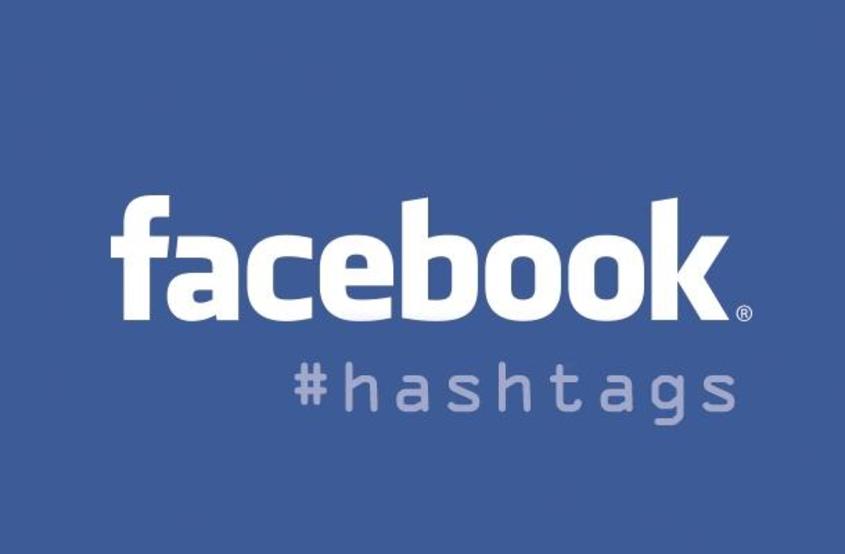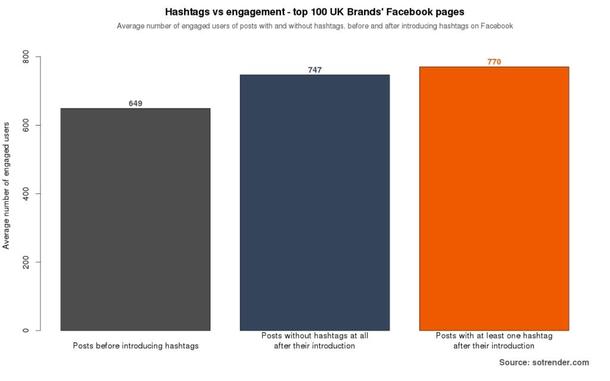First Month of Facebook Hashtags: A Critical Review close
In Codegent College

It’s been a month since Facebook rolled out Hashtags. Businesses had the first experiences with the familiar feature we all know from Twitter, although we haven’t really seen a good deal of them so far. In the UK, 61 of 100 top brands have used Facebook Hashtags at least once. The advantages for marketers are obvious: #hashtags make it easier to track conversations about a brand, content can be found more easily and they are valuable for targeting new audiences.
However, Facebook users are still restrained and it is going to take some time before they will be familiar with the new tagging feature. If they do, experts think that Facebook Hashtags may become bigger than the originals from Twitter.
Facebook #Hashtags ≠ Twitter #Hashtags
For now, Facebook Hashtags and Twitter Hashtags differ from each other substantially. On Twitter, every tweet including a hashtag shows up when you search for that #. On Facebook, only publicly shared status updates show up. According to a Consumer Reports study only 28% of users post publicly, while tweets are public by default. Consequently, a Twitter search for a certain hashtag will yield a lot more results than a Facebook search at the moment.
Facebook #Hashtags come with a bunch of Privacy Issues
Obviously, privacy issues stand in the way of the big breakthrough. With 72% posts shared only with a limited audience, Facebook Hashtags are not exactly a strong real-time discussion tool. As status updates are private by default, some brands started to instruct their fans to set their updates to “public” in the privacy settings. That’s what BET did. Maybe a step too far...

However, Facebook seems to take their user’s privacy seriously in this case. If a #hashtag is used in a comment, for example, it wont show up in the search results. That’s because the author of the original post has control over whether he wants to tag his status update or not.
They don’t work on mobile
Surprisingly, Facebook #Hashtags don’t work on mobile yet. You would assume that hashtags are especially useful on mobile devices, as they could lead to massive discussions as a result of second screen usage. Also - as we know from Twitter - hashtags are very popular at events. If Facebook Hashtags functioned on mobile, marketers could use them to organise status updates related to the event and to respond in real-time.
Facebook will monetise Hashtags eventually
Although Facebook stress that their Hashtags are not open to advertising right now, they will certainly find a way to make money out of their new feature eventually. Hashtags are still in their infancy and Facebook will wait until users are familiar and comfortable with using them. But then, they’ll probably introduce Trending Topics for users to find out what’s being talked about. And for marketers to be able to buy a spot in the list of trending topics.
No significant influence on engagement
An analysis by Sotrender could not find proof that posts including Facebook Hashtags generate more engagement than posts without hashtags. What they did find out is that both kinds of posts (with and without #hashtags) have gained engagement since the introduction of Facebook Hashtags. However, this can be due to growth in fans or interactivity in general.

All in all, there’s a long way to go. But that doesn’t mean you shouldn’t give it a try. Facebook Hashtags will become more popular eventually. However, as a marketer, you should always have privacy issues and good content in mind. Hashtags are just aids, content is the chief material. And hashtags will never compensate for bad content.